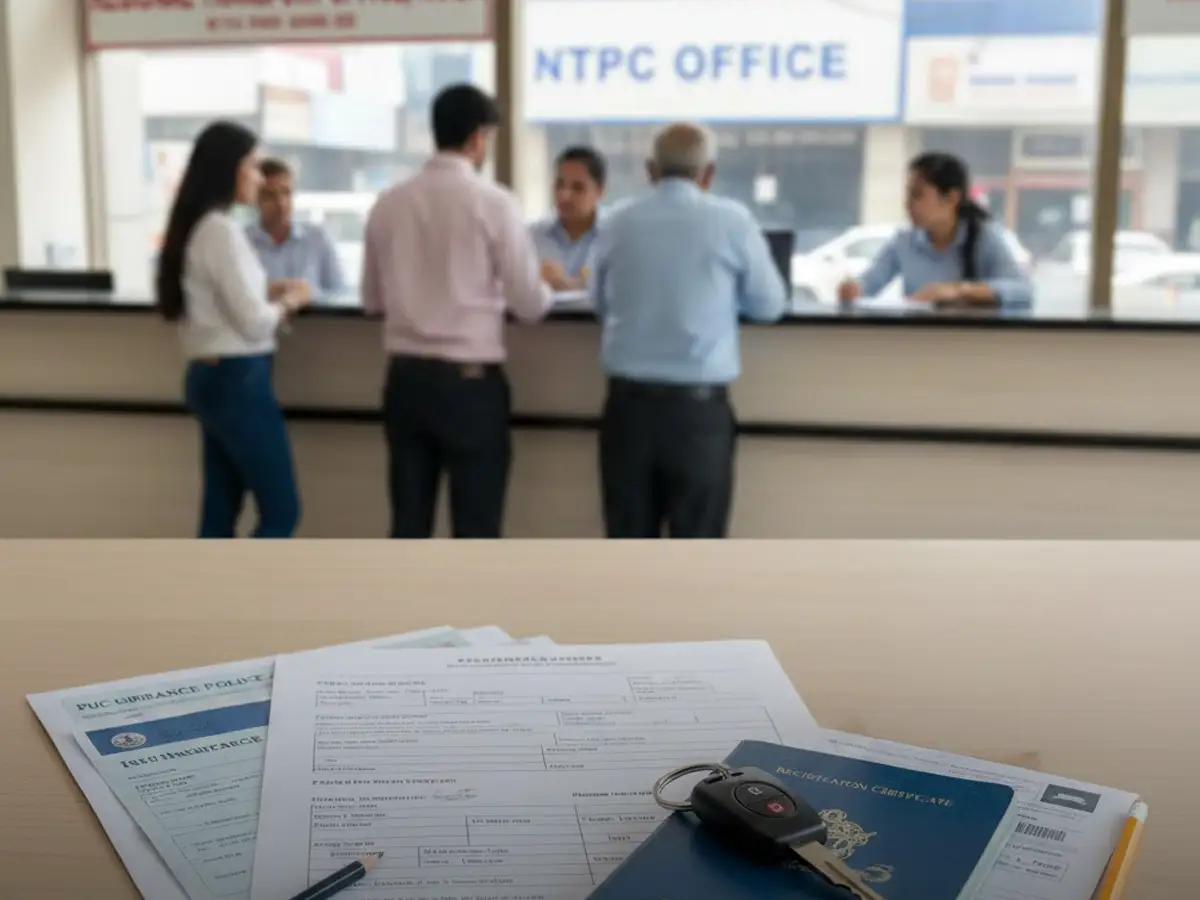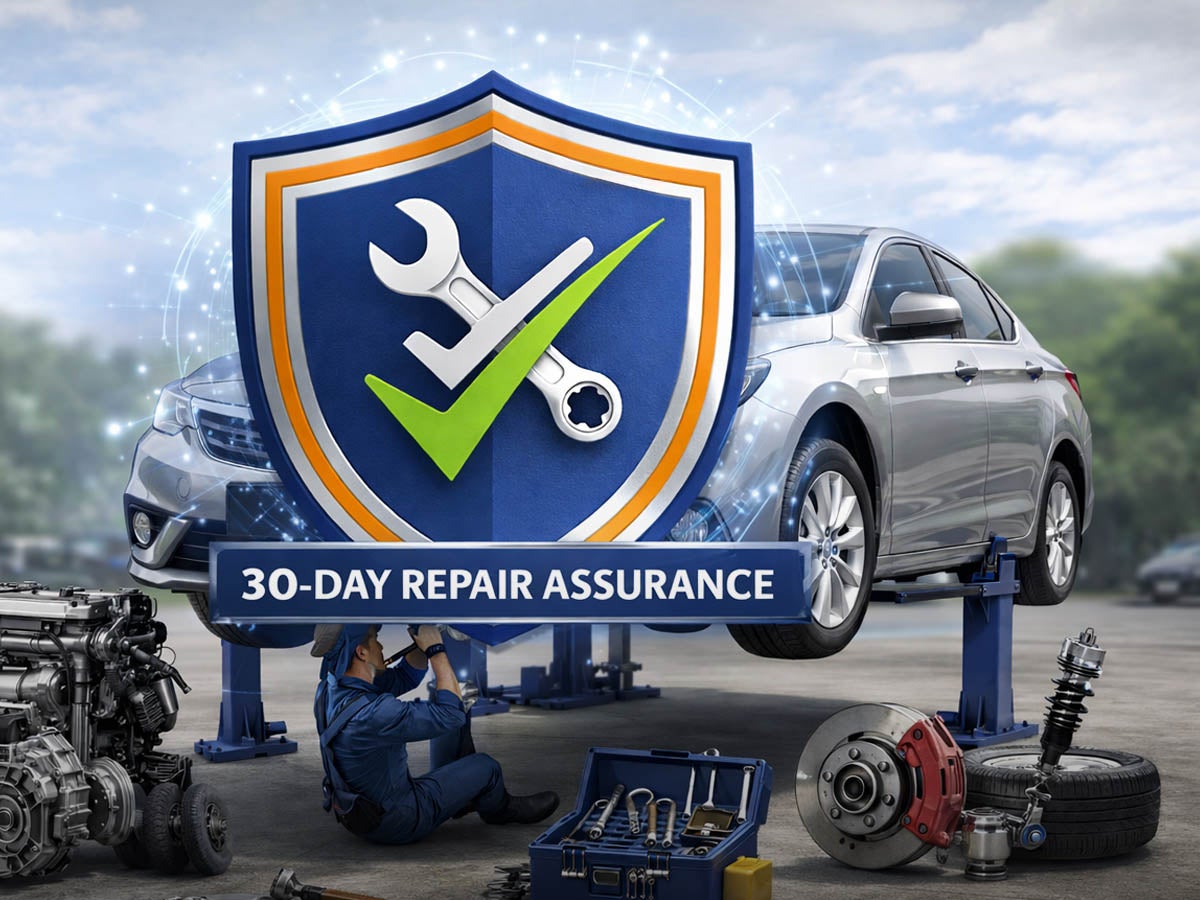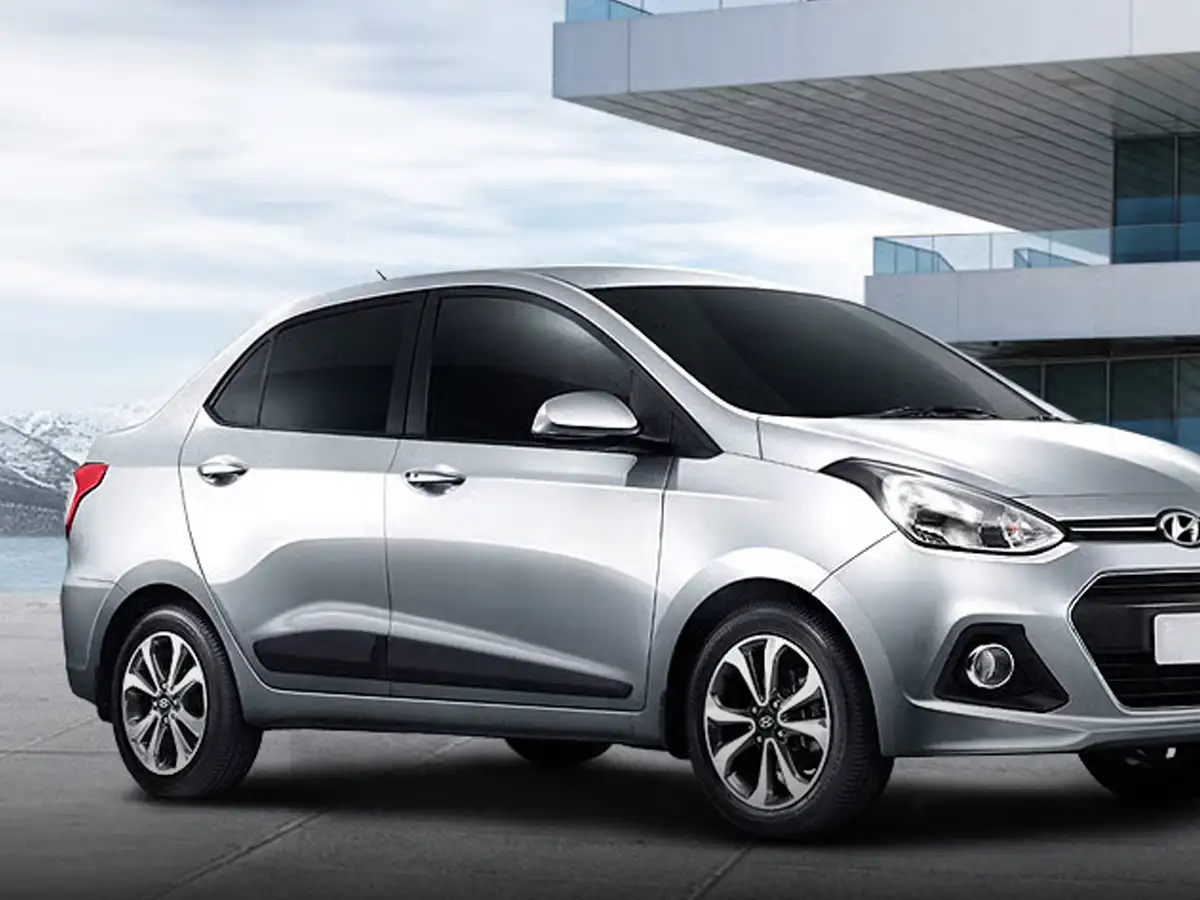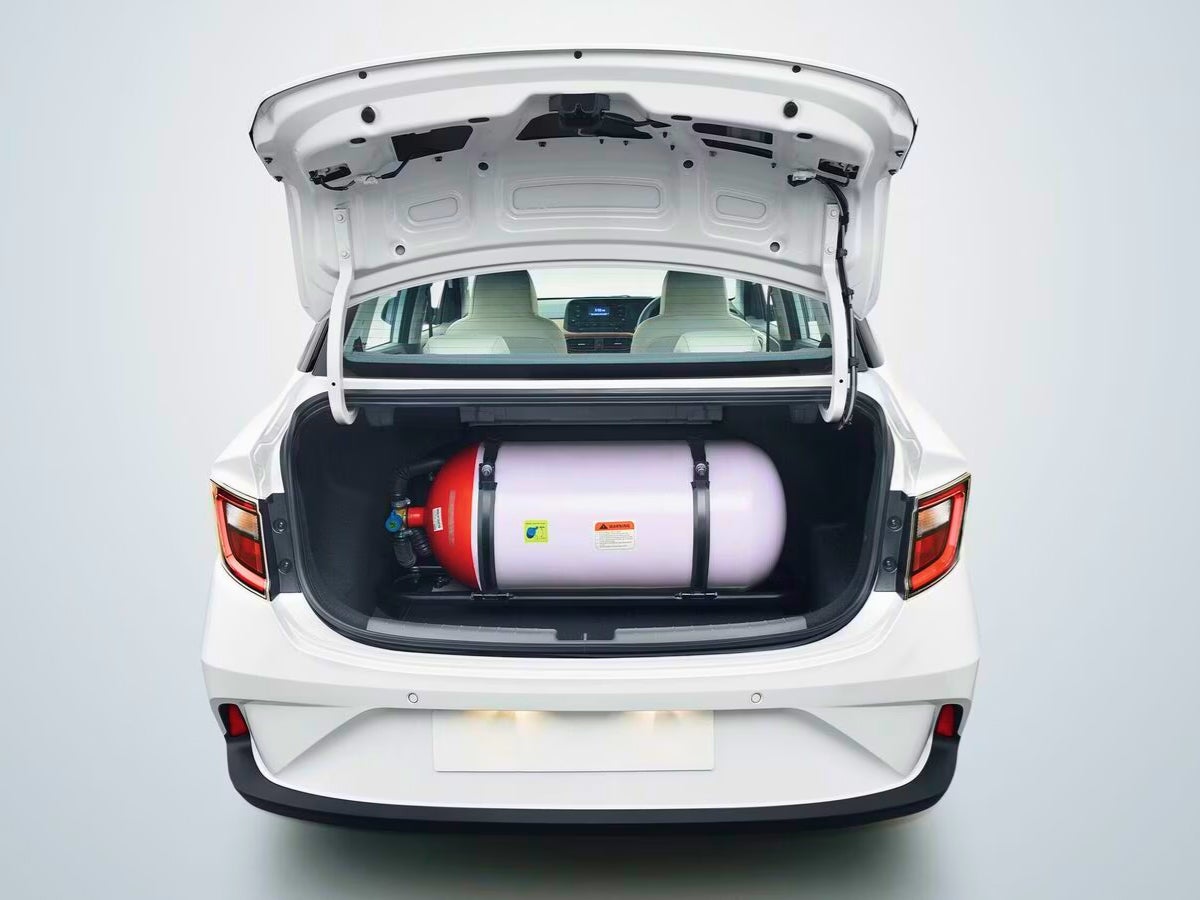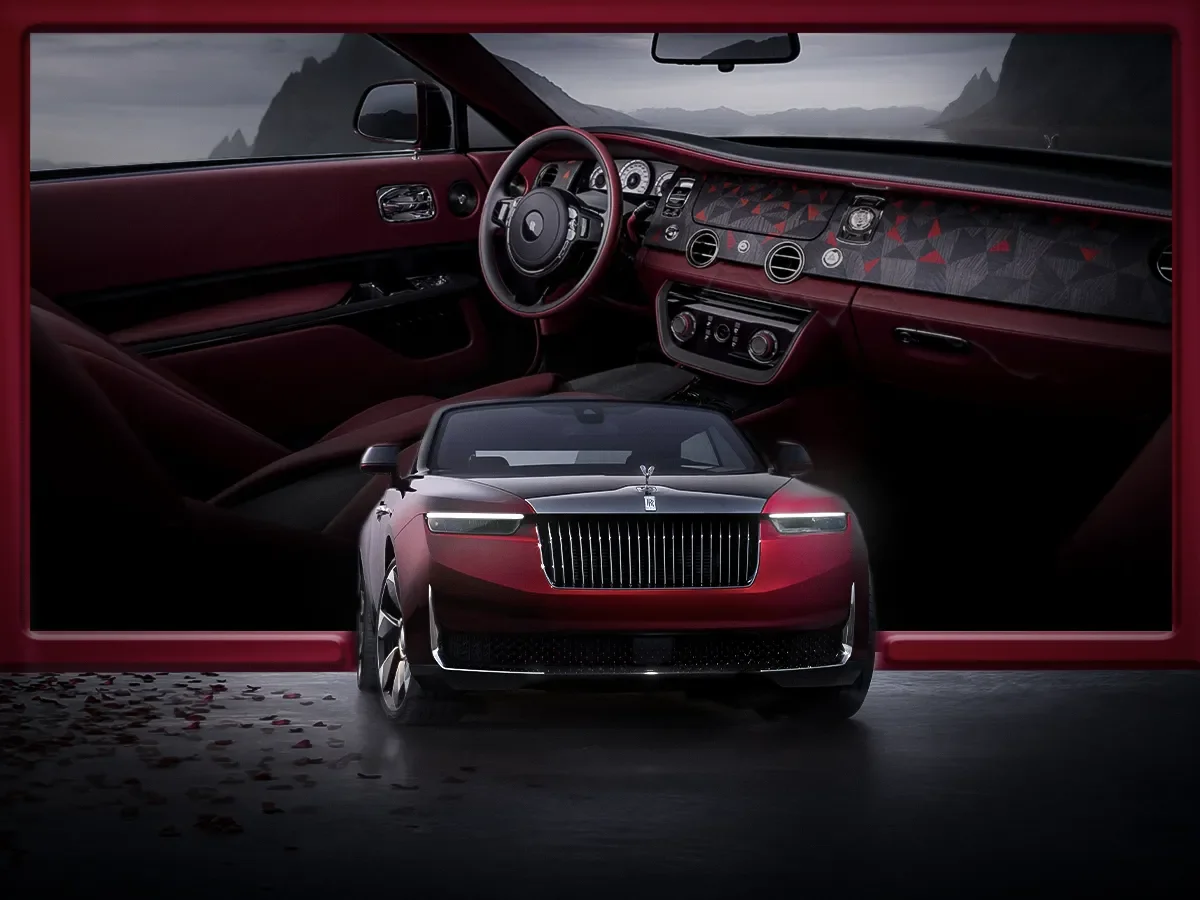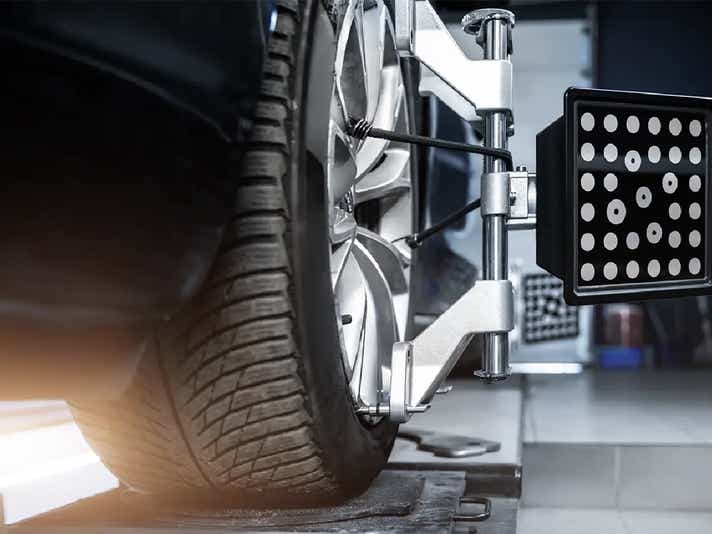

Wheel alignment and wheel balancing: Why both are essential for your car
- 1Misaligned wheels cause uneven tyre wear and steering pull
- 2Unbalanced wheels create vibrations and reduce fuel efficiency
- 3Timely wheel care avoids costly suspension and tyre repairs
All four tyres of your car are subjected to the constant strain of the vehicle’s weight. They also endure jolts from bumps and potholes and variable forces from acceleration, deceleration, and turning. Their health determines how safe and efficient you are on the road. Two tyre-related services - wheel alignment and balancing—are crucial to keep your car’s tyres in the best condition and extend their life.
What is Wheel Alignment in Cars?
Wheel alignment service in cars involves adjusting critical wheel angles—caster, camber, and toe. These angles must be aligned with the manufacturer’s specifications to offer precise handling, even wear, and extended tyre life. Proper alignment ensures that wheels point in the same direction and have the right angles for optimum handling and tyre wear.
The three angles in wheel alignment are mentioned below.
Camber: It is the inward or outward tilt of the wheel as viewed from the front of the vehicle.
Caster: When viewed from the side of the car, the caster angle can be determined. It is the angle of the steering axis and affects the steering stability.
Toe: The toe angle is the one in which the wheels turn inward or outward when viewed from the top of the car.

Signs Indicating Misalignment of Car Wheels
Here are some signs that can give you an idea of whether your car’s wheel alignment needs attention.
- Your car’s tyres are wearing rapidly or unevenly
- The vehicle tends to pull to one side while driving
- An off-centre steering wheel when driving on a straight road
- Difficulty in steering or poor handling is observed
What is Wheel Balancing in Cars?
Tyres are made of rubber and steel, and even with precision manufacturing processes, slight inconsistencies in the material density can create uneven weight distribution. Wheel rims, on the other hand, are manufactured by casting or forging methods that can leave minute imperfections in shape and weight distribution. In addition, while running, the tyres experience dynamic forces, including wearing, temperature variations and road impacts, which may lead to even more imbalance over time. This causes the wheels and tyre assemblies to wobble while running. The wheel balancing service involves identifying heavier areas and counterbalancing them with small weights on the rim.

Signs of Imbalance in the Wheels
Here are some signs of wheel imbalance that you must observe.
- Vibrations are felt at the steering wheel, especially at high speeds
- The tyres continue to wear unevenly even after wheel alignment
- Excessive road noise is heard while driving
- High stability and handling is negatively affected
- Fuel consumption is increased
- Strains suspension and steering components
Benefits of Wheel Alignment and Balancing in Your Car
Here are some benefits of the car wheel alignment service.
- The tyres wear evenly
- The life of tyres is extended
- The driving comfort is improved
- Handling and stability are enhanced
- The strain on suspension and steering system components is reduced
Here are some benefits of the car wheel balancing service.
- Well-balanced wheels provide smoother rides
- Unwanted vibrations are eliminated after proper wheel balancing
- Rolling resistance is reduced, leading to better fuel efficiency
- Minimises strain on the steering and suspension ball joints and bushings

Difference Between Wheel Alignment and Wheel Balancing
| Wheel Alignment | Wheel Balancing | |
| Primary Function | Wheel angles are adjusted as per the manufacturer’s specifications | It corrects the weight distribution to reduce wheel wobble |
| Tools and Technique | A 3D Wheel alignment machine measures camber, caster and toe angles | The spin balancer machine measures imbalance and weights are added to correct it |
| Service Frequency | Recommended every 10,000 km | Recommended when tyres are replaced or after every tyre rotation |
Common Misconceptions about Wheel Alignment and Balancing
There are some common misconceptions about car wheel alignment and balancing services.
- It is often confusing that both these services are the same. However, this is not the case, as both services address entirely different issues
- Some people believe that these services are optional and can be performed whenever they feel like it or can be skipped entirely
- Ignoring the importance of well-aligned and properly balanced wheels, such as improved tyre life, better safety and lower fuel consumption
Conclusion
If you stick to timely wheel alignment and balancing services for your vehicle, you can avoid expensive repairs to suspension or steering systems and tyres. Getting wheel care services performed by a professional garage like FourDoor is of the utmost importance, as they have the expertise to deal with a vehicle's most critical aspect: the tyres.
Frequently Asked Questions
Expand all



